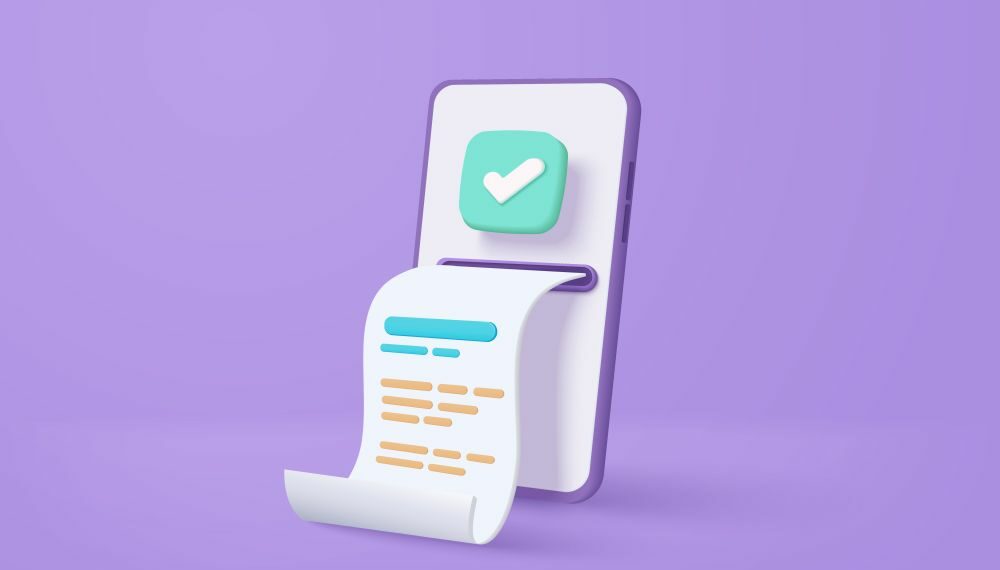The digital billing market is projected to reach a value point of $180.1 billion by 2026 and is currently poised to maintain a CAGR of 15.4%. As the benefits of using a digital billing system come to light, millions of businesses are making the choice to move away from paper.
The global economy is transforming into something far more dynamic and flexible than it was in the past. With virtual payments and cryptocurrencies becoming more popular by the day, it only makes sense for business transactions to follow suit.
But what place does digital billing really have in the average small business set-up, and how can it be used to redefine payments in the 2020s? In this post, we’ll find out.
What Is Digital Billing?
First things first, let’s be clear on what the term “digital billing” really means. Digital bills are essentially just electronic versions of paper bills. Every time you send or receive an e-invoice or transfer money via your bank app, you are using digital billing.
Digital billing is much more efficient than paper billing systems, and it allows for more transactional options for both the sender and the recipient of the payment. Whether you represent yourself independently or an entire business, digital billing brings many advantages.
6 Benefits Of Utilizing A Digital Billing System
Digital billing systems facilitate a much wider variety of payment options and services than their paper-based alternative. From speed to cost-effectiveness to improved accuracy, there are a multitude of reasons to consider switching to an entirely digital billing system. Just some of the ways small businesses benefit include:
1. Saving time and money
One of the first and most obvious advantages of using digital billing processes is that it can save both time and money, both of which are often limited in a small business. A digital billing system runs on automation and intuitive data-driven processes, allowing invoices to get drawn up, stored, and even sent out on your business’s behalf.
Compared to the manual alternative, this digital system is much faster and doesn’t require any of the costs, such as paper, pens, or printing, that we once relied on.
But more than anything else, digital billing saves time. It’s incredibly fast and efficient, thus allowing your business to become more productive and apply its time to bigger priorities.
2. Regulating cash flow and financial sustainability
Using a digital system can help your business become more financially stable. So many of today’s payments get sent through late (or not at all), leading to a backlog of owed payments that compromises the financial sustainability of businesses.
This is especially problematic for smaller businesses or start-ups that rely on basic cash flow to cover their essential costs. Because digital billing is automatic, it ensures that no bill gets forgotten about, and every invoice that gets sent out is 100% accurate to the decimal.
3. Providing you and customers with payment flexibility
Digital transactions are far more practical and accessible than other transactions today. Most bills are paid via instant bank transfers, which can be accessed from anywhere in the world.
But it’s not just bank transfers that have risen in popularity. There’s cryptocurrency, PayPal, Apple Pay, and Google Pay, to name a few. All of these payment options are compatible with digital billing systems, helping you and your customers gain access to a wider variety of options. For customers, this also optimizes invoice processing on their side, so payments are prompt.
4. Helping to protect your business from fraud
Most digital billing systems are encrypted, thus protecting your private banking data (and your clients’) from being stolen, leaked, or otherwise compromised.
Taking measures to protect your business from fraud is essential for everyone in this day and age. The number of cyberattacks resulting in financial theft and a slew of other undesirable outcomes has skyrocketed in recent years, and it’s naive to think you’ll be safe from it forever.
When you utilize a digital billing system, you don’t have to worry as much about the safety of your and your clients’ banking data. This can also contribute to your credibility as a business and open your brand up to higher-paying customers.
5. Facilitating more organized financial records
Keeping your financial records organized is another seriously important aspect of business management, and it forms part of digital billing’s biggest strengths.
All financial documents such as incoming and outgoing invoices, receipts, and statements get automatically filed and stored onto the digital system you use. This lowers your admin responsibilities and streamlines your document recording system.
6. Reducing the risk of human error
One of the most common reasons for unpaid or late payments is invoice error. The wrong date, amount owed, or description of services can all contribute to a failure to pay, which hurts your business’s bottom line and makes your brand appear less professional.
Both of these are things to avoid. And with digital billing, you can. Digital billing systems are designed to identify and correct any typos or mistakes in the invoices sent out. This massively reduces the risk of human error and helps you to maintain a professional business persona.
How To Implement Digital Billing Into Your Small Business
By now, you may be one of the millions of small businesses or independent contractors who want to make the switch from paper billing to digital billing. So, how do you accomplish that?
The easiest way to implement digital billing in your business is to download and install a digital billing software tool from the internet. There are hundreds of options available, some of which are completely free. The ones that do charge are often worth the cost.
These digital platforms often come with special additional features such as custom notifications, tips on how to make an invoice, useful accounting templates, and elevated storage options that make billing management even faster and easier.
The Bottom Line
Digital billing has become a major part of the way businesses engage with each other and their customers. With these accessible yet sophisticated systems, you can help your small business redefine the way it makes and receives payments in our virtual economy.





